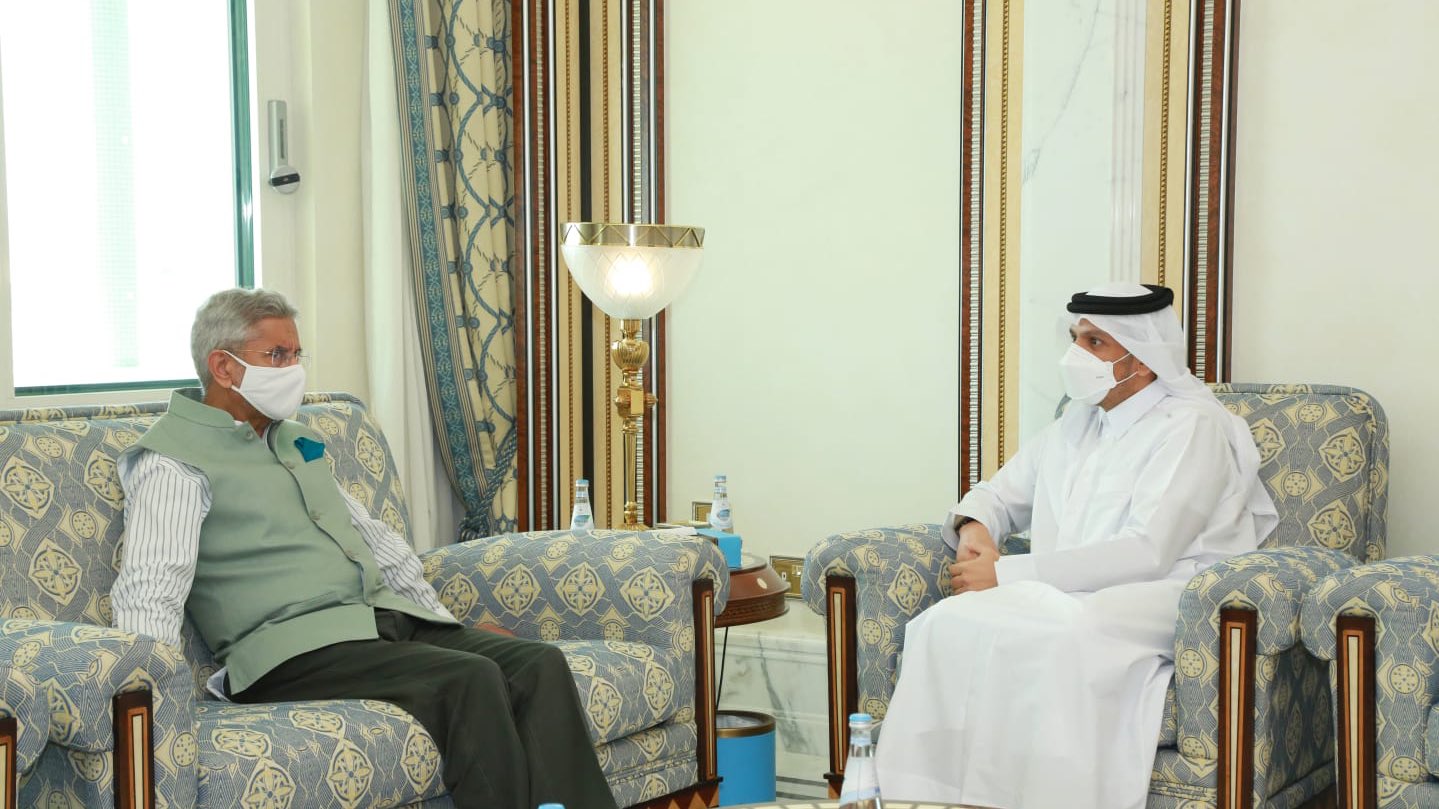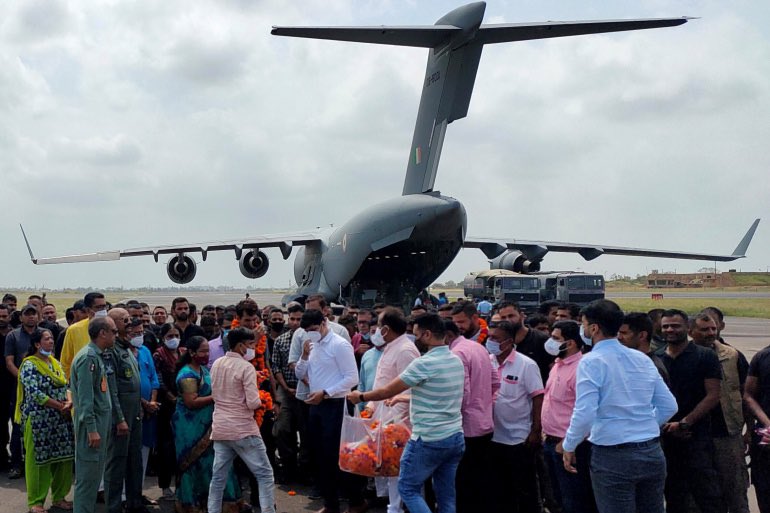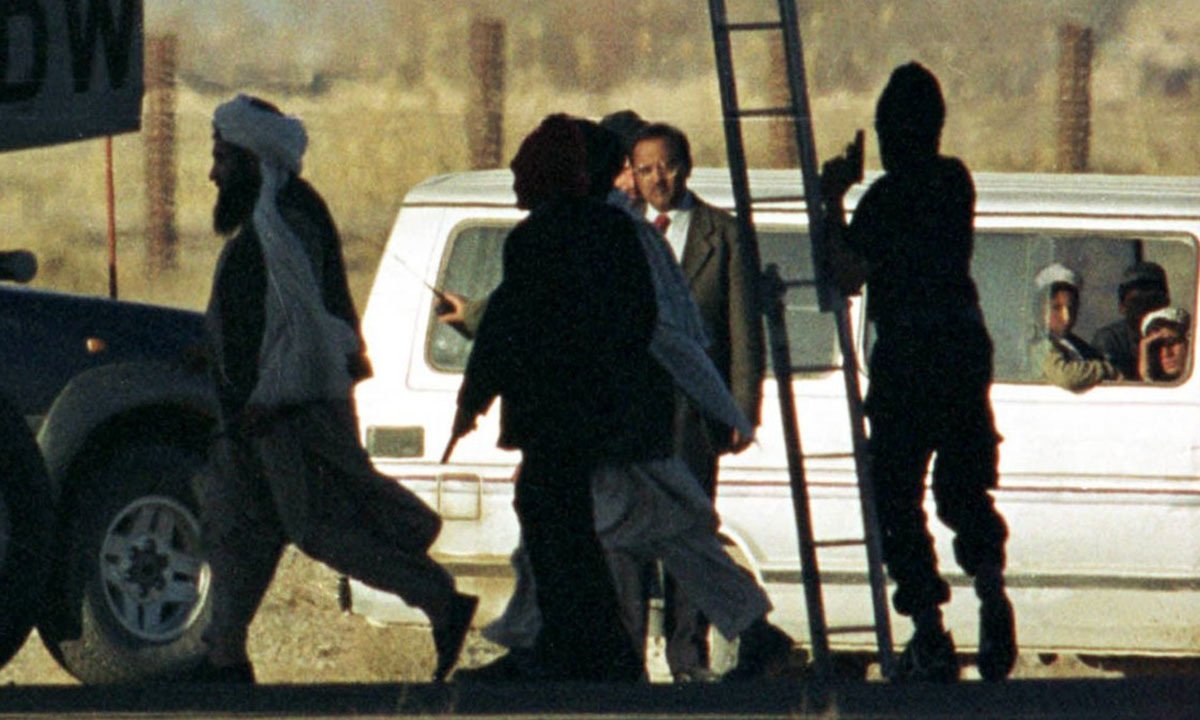India which invested nearly $3 billion in war-torn Afghanistan over the years has found itself at the receiving after the Taliban took control of the country. This has prompted foreign policy analysts to ponder over whether India can leverage its old contacts in the Taliban to turn things in its favor.
As Taliban Seizes Power, China Poised To Make ‘Big Gains’ In Afghanistan
Qatar gave the Taliban access to set up its office in the capital city Doha. This office was set up for conducting peace talks with the United States and whoever wanted to contact the Taliban could do so at this place.
In June 2021, Indian External Affairs Minister S. Jaishankar had visited Doha as New Delhi was seeking Qatari assistance to create a ground for India-Taliban relations.
Did India Miss The Bus?
Even though seeking Qatar’s help in opening a link with the Taliban was a good idea, India also had the means to independently approach the situation.
Taliban spokesperson Sohail Shaheen was seen on Indian television on various occasions and Sher Abbas Shanikzai, head of the Taliban’s Doha office has referred to his training at the Indian Military Academy several times. Taking these into consideration, it looks like that India could have easily leveraged these old contacts.

Taliban’s takeover of Afghanistan following the fall of the capital city of Kabul is a major test thrown at India as these developments have changed the geopolitics of South Asia massively.
India already has disputes and strained relations with both China and Pakistan, both of which are expected to be deeply involved in all future developments of Afghanistan.
Out of these two, Pakistan has always been significantly involved in all affairs related to Afghanistan whereas China can be seen quitting to play the role of a silent participant ever since the US troops exited from Afghanistan.
The meeting held between Chinese Foreign Minister Wang Yi and senior Taliban leaders last month at Tianjin is testimony to this fact.

“This potential geopolitical realignment could change things upside down”, Gautam Mukhopadhaya, India’s former ambassador to Afghanistan and Syria, told BBC.
Afghanistan was ruled by a democratic government with support from Western democracies as well as India. With the Taliban taking over, countries like China, Russia, Iran, and Pakistan would try to make fresh inroads into the country.
According to some experts, this seems to be a big loss for New Delhi and a win for Pakistan. Jitendra Nath Misra, a former diplomat, is of the view that the Pashtun-led Taliban have never recognized the border between Afghanistan and Pakistan which has created problems for Islamabad.
“Pakistan would want to get the Taliban to accept the border and this will be a top priority”, he said. This being the case, the Taliban’s rule in Afghanistan does give Pakistan strategic depth in India.

China, on the other hand, is eying to make the most of mineral-rich Afghanistan. Beijing is looking to invest in the mining sector to cater to its growing requirement of minerals but to also influence the Taliban in a way that it does not back the East Turkestan Islamic Movement (ETIM), the group which China blames for creating unrest in the Muslim-dominated Xinjian province, and to also ban them from operating them in Afghanistan.
Mukhopadhaya said China and Pakistan ”would ride piggyback on each other in Afghanistan”, adding that “Beijing should be cautious and not fall into any trap like other world powers in the past ”.
Options Before India
The biggest challenge facing India is whether or not to recognize the new Taliban regime. Misra said that “there are no good options for Delhi”. “There are bad and then there are worse options”, he told BBC.
Even if India does recognize the Taliban, the relation will always be strained. This is because of the bitter history shared by India and the Islamist insurgents since the latter aided the hijackers of the IC-814 in 1999 by providing them a safe passage.
However, in recent years, India did participate in meetings with the Taliban. In 2018, two retired diplomats were sent to attend the Moscow talks on the Afghan peace process.
The only easy way out for India is to keep an open communication channel with the Taliban in order to safeguard its own security and interests. Taliban’s success is also concerning for India because this could motivate Pakistan-based militant groups such as Lashkar-e-Taiba to plan and execute attacks in the country.

“We understand Pakistan and Afghanistan better than most others. We should have been one step ahead,” Anand Arni, a former Special Secretary in the Cabinet Secretariat, wrote in a piece for The Wire.
Analyzing the current situation, he said a link or a channel to the Taliban is desirable, but it has to be done discreetly “for it is the message that is important”.
He believes India may get another chance as “the Taliban cannot rule on its own if it comes to power. It will need outside financial support, which Pakistan cannot underwrite, and international acceptance”.
All said and done, it would require some smart diplomatic moves on the part of New Delhi to turn the tide in its favor as losing Afghanistan would put a question mark on India’s stature as the most powerful country in South Asia.
— Co-authored by Kashish Tandon




